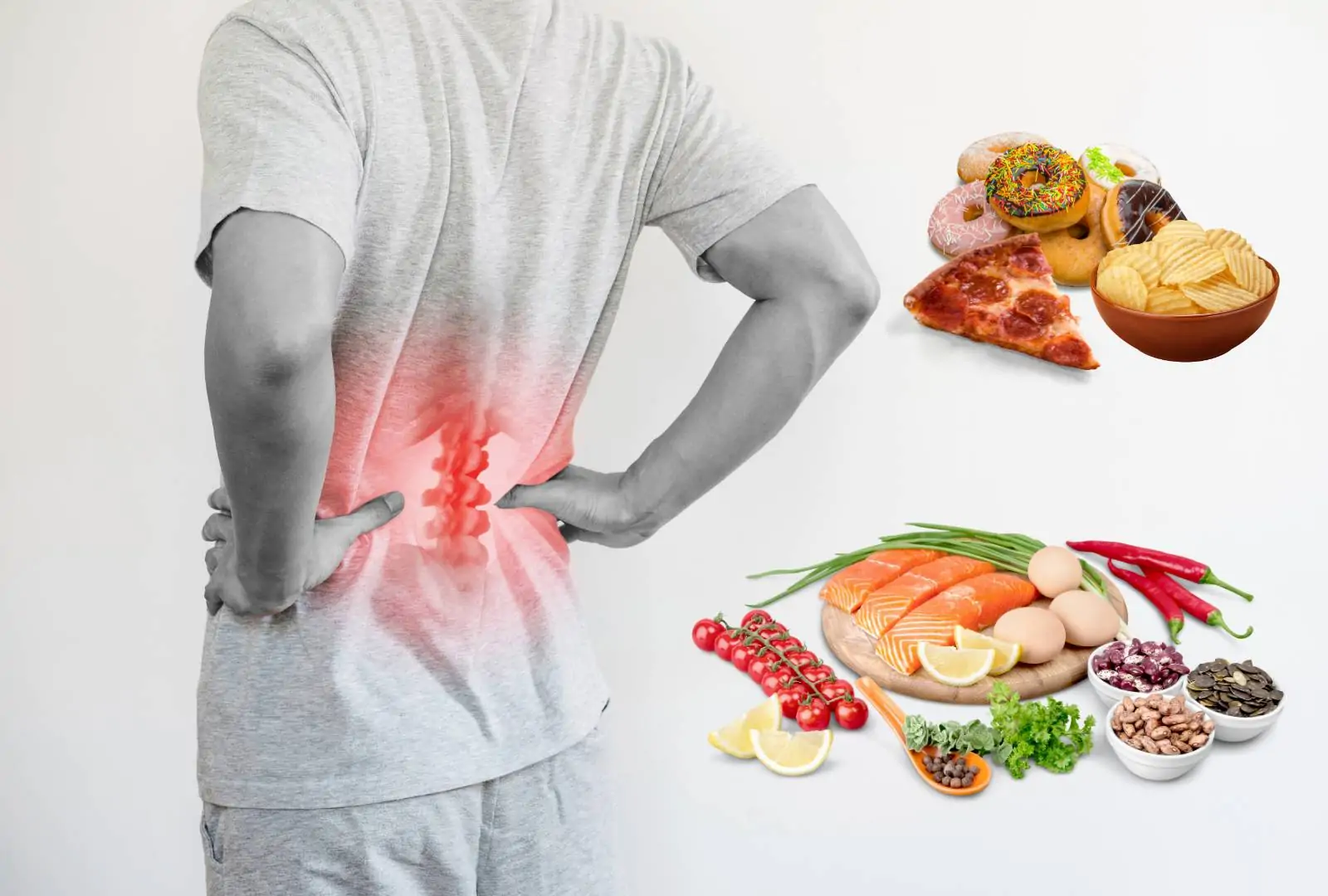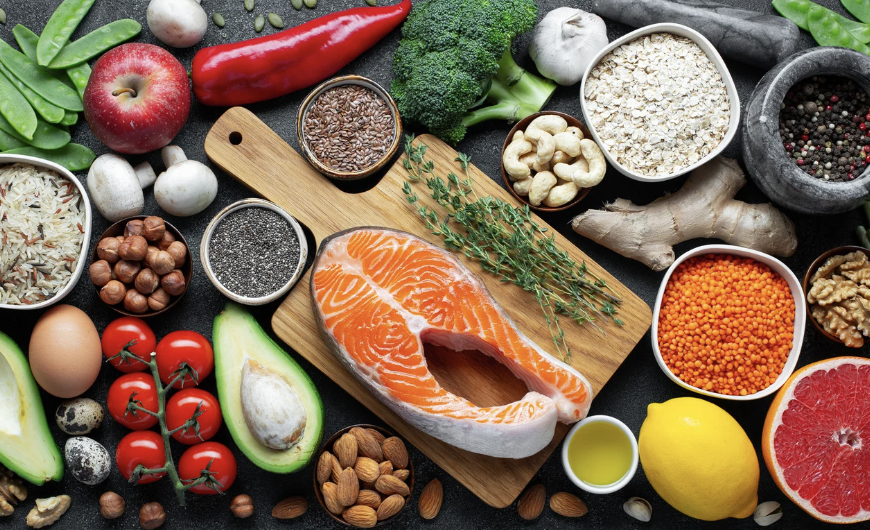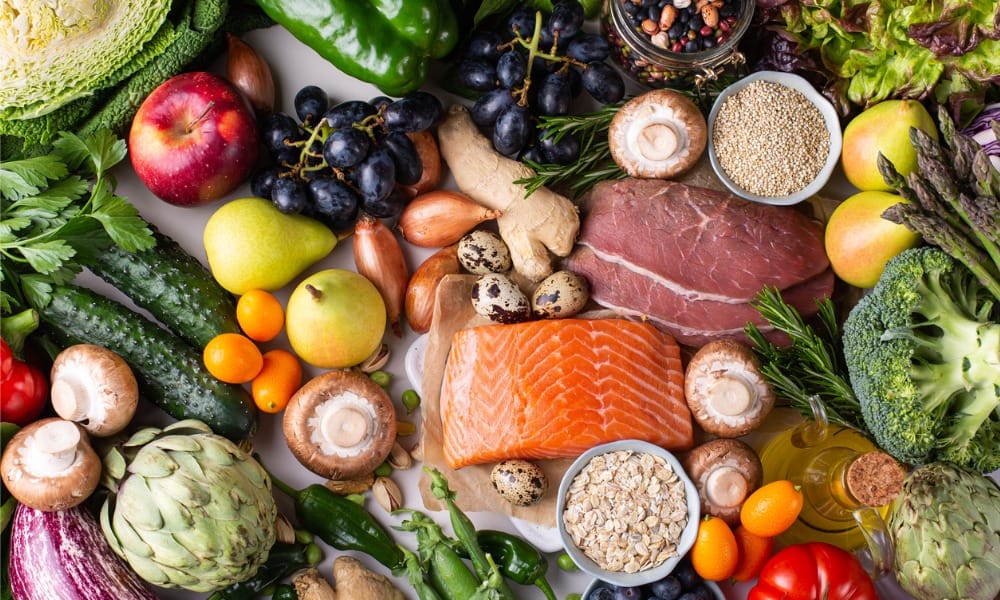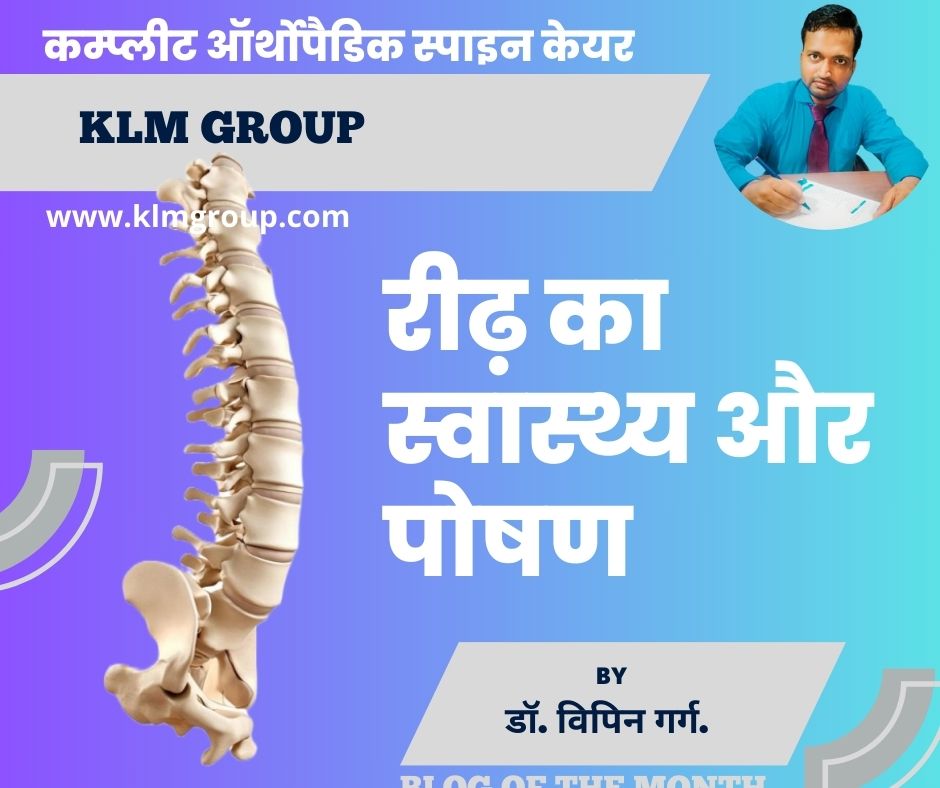Spine Health and Nutrition: Maintaining a healthy spine is vital for overall well-being and mobility. While exercise and proper posture are well-known factors in spine health, nutrition plays an equally important role. The right diet can strengthen bones, support disc health, and prevent spinal conditions. In this blog, we will explore the connection between spine health and nutrition, identify key nutrients and foods beneficial for bone and disc health, and highlight the expertise available at the KLM Group, led by Dr. Vipin Garg. We can see more details about “Spine Health and Nutrition” in this blog.

The Connection Between Nutrition and Spine Health
Importance of Bone Health
The spine is composed of vertebrae, which are bones that need to be strong and healthy to support the body’s structure and facilitate movement. Nutrition directly influences bone density and strength, making it crucial to consume a diet rich in essential vitamins and minerals. We can see more details about “Spine Health and Nutrition” in this blog.

Role of Discs
Intervertebral discs are soft, gel-like structures between the vertebrae that act as cushions, absorbing shock and allowing flexibility. Proper nutrition can help maintain the hydration and integrity of these discs, preventing degenerative conditions like disc herniation and degenerative disc disease.
Essential Nutrients for Spine Health
Calcium
Calcium is the primary mineral responsible for bone strength. Adequate calcium intake helps maintain bone density and reduces the risk of osteoporosis and spinal fractures.
Food Sources of Calcium
- Dairy products: Milk, cheese, yogurt
- Leafy greens: Kale, spinach, collard greens
- Fortified foods: Orange juice, cereals, plant-based milks
- Nuts and seeds: Almonds, chia seeds, sesame seeds
Vitamin D
Vitamin D is crucial for calcium absorption and bone health. It helps maintain the balance of calcium in the blood and bones.
Food Sources of Vitamin D
- Fatty fish: Salmon, mackerel, sardines
- Fortified foods: Milk, orange juice, cereals
- Egg yolks
- Mushrooms
Magnesium
Magnesium plays a vital role in bone formation and the functioning of muscles and nerves. It also helps convert vitamin D into its active form for better calcium absorption. We can see more details about “Spine Health and Nutrition” in this blog.

Food Sources of Magnesium
- Nuts and seeds: Almonds, cashews, pumpkin seeds
- Whole grains: Brown rice, quinoa, oats
- Legumes: Black beans, lentils, chickpeas
- Leafy greens: Spinach, Swiss chard
Vitamin K
Vitamin K is essential for bone mineralization and helps in the regulation of calcium in the bones and blood.
Food Sources of Vitamin K
- Leafy greens: Kale, spinach, broccoli
- Cruciferous vegetables: Brussels sprouts, cabbage
- Fermented foods: Natto, sauerkraut
- Dairy products
Omega-3 Fatty Acids
Omega-3 fatty acids have anti-inflammatory properties that can help reduce inflammation in the spine and joints, promoting overall spinal health.
Food Sources of Omega-3 Fatty Acids
- Fatty fish: Salmon, mackerel, sardines
- Nuts and seeds: Walnuts, flaxseeds, chia seeds
- Plant oils: Flaxseed oil, walnut oil, canola oil

Collagen
Collagen is a protein that provides structure to bones, cartilage, and intervertebral discs. It helps maintain the integrity and flexibility of these tissues.
Food Sources of Collagen
- Bone broth
- Gelatin
- Collagen supplements
- Animal proteins: Chicken, beef, pork
Antioxidants
Antioxidants protect the body from oxidative stress, which can damage cells, including those in the spine. Vitamins C and E are particularly important for collagen production and protecting the spine’s soft tissues. We can see more details about “Spine Health and Nutrition” in this blog.
Food Sources of Antioxidants
- Vitamin C: Citrus fruits, strawberries, bell peppers, broccoli
- Vitamin E: Nuts and seeds, spinach, avocados, olive oil
- Polyphenols: Berries, green tea, dark chocolate, red wine
Foods Beneficial for Spine Health
Dairy Products
Dairy products are rich in calcium and often fortified with vitamin D, making them excellent for bone health. Include milk, cheese, and yogurt in your diet to support strong bones.

Fatty Fish
Fatty fish like salmon, mackerel, and sardines are high in vitamin D and omega-3 fatty acids, which are beneficial for bone density and reducing inflammation in the spine.
Leafy Greens
Leafy greens such as kale, spinach, and collard greens are packed with calcium, magnesium, and vitamin K. These nutrients are essential for maintaining bone health and supporting the spinal structure.
Nuts and Seeds
Nuts and seeds provide a good source of magnesium and omega-3 fatty acids. Almonds, chia seeds, and flaxseeds can be added to your diet to support bone and disc health.
Berries
Berries are rich in antioxidants, particularly vitamin C, which is essential for collagen production and protecting the spine’s soft tissues from oxidative stress.
Whole Grains
Whole grains like brown rice, quinoa, and oats are good sources of magnesium. They also provide fiber, which helps maintain a healthy weight, reducing strain on the spine.
Legumes
Legumes, including lentils, chickpeas, and black beans, are rich in magnesium and other essential nutrients. They support overall bone health and can be included in various meals for a balanced diet. Address Link: https://g.page/r/CQ0WqKLEXPWeEAE Powered By Argusdna Also for the best, Orthopedic doctor and surgeon in Kolkata visit www.bonedoctorgautam.com

Bone Broth
Bone broth is rich in collagen, which supports the health of intervertebral discs and other connective tissues in the spine. Consuming bone broth regularly can help maintain the flexibility and integrity of these tissues.
The Role of Hydration
Importance of Staying Hydrated
Proper hydration is crucial for the health of intervertebral discs. These discs are composed mostly of water, and dehydration can lead to disc degeneration and spine-related issues.
Tips for Staying Hydrated
- Drink plenty of water throughout the day.
- Include hydrating foods like fruits and vegetables in your diet.
- Avoid excessive consumption of caffeinated and alcoholic beverages, which can lead to dehydration.

KLM Group: Expertise in Spine Health
Dr. Vipin Garg
Dr. Vipin Garg is a highly respected orthopedic specialist with extensive experience in treating spine-related conditions. As the leader of the KLM Group, Dr. Garg emphasizes the importance of a holistic approach to spine health, which includes proper nutrition, exercise, and medical interventions when necessary.
Services Offered by KLM Group
- Diagnostic Evaluations: Utilizing advanced imaging and diagnostic techniques to accurately assess spine health and identify underlying issues.
- Physical Therapy: Personalized rehabilitation programs designed to strengthen the core, improve flexibility, and alleviate pain.
- Nutrition Counseling: Offering guidance on diet and nutrition to support spine health and overall well-being.
- Pain Management: Comprehensive pain management strategies, including medications, injections, and alternative therapies.
- Minimally Invasive Procedures: Offering minimally invasive options for patients with severe symptoms.
- Patient Education: Providing resources and education to help patients understand their condition and make informed decisions about their treatment.
Success Stories
The KLM Group has a track record of successful outcomes in treating spine-related conditions. Many patients have experienced significant pain relief and improved quality of life through personalized treatment plans that include nutritional counseling and other holistic approaches. Testimonials from satisfied patients highlight the compassionate care and expertise of Dr. Vipin Garg and his team.
Conclusion
Nutrition plays a vital role in maintaining spine health and preventing spinal conditions. A diet rich in essential vitamins and minerals, such as calcium, vitamin D, magnesium, vitamin K, omega-3 fatty acids, collagen, and antioxidants, can significantly improve bone density, support intervertebral disc health, and reduce inflammation.
Incorporating nutrient-dense foods like dairy products, fatty fish, leafy greens, nuts and seeds, berries, whole grains, legumes, and bone broth into your diet can enhance spinal health and overall well-being. Additionally, staying hydrated is crucial for maintaining the hydration and integrity of intervertebral discs.
For those seeking expert care and guidance in spine health, the KLM Group, led by Dr. Vipin Garg, offers comprehensive and personalized treatment plans. By choosing the KLM Group, you can rest assured that you are in the hands of experienced professionals dedicated to your well-being and recovery.
Contact KLM Group:
- Book Your Consultation
- Website: https://tinyurl.com/yyzvwmck
- Email: info@klmgrou p.org
- Ph: 0751-4000721,Mob: 7804826825
- Address: 12, Saraswati Nagar, University Road, Near Silver Estate, Thatipur,
By prioritizing nutrition and seeking expert care, you can take proactive steps towards a healthier spine and a better quality of life.

